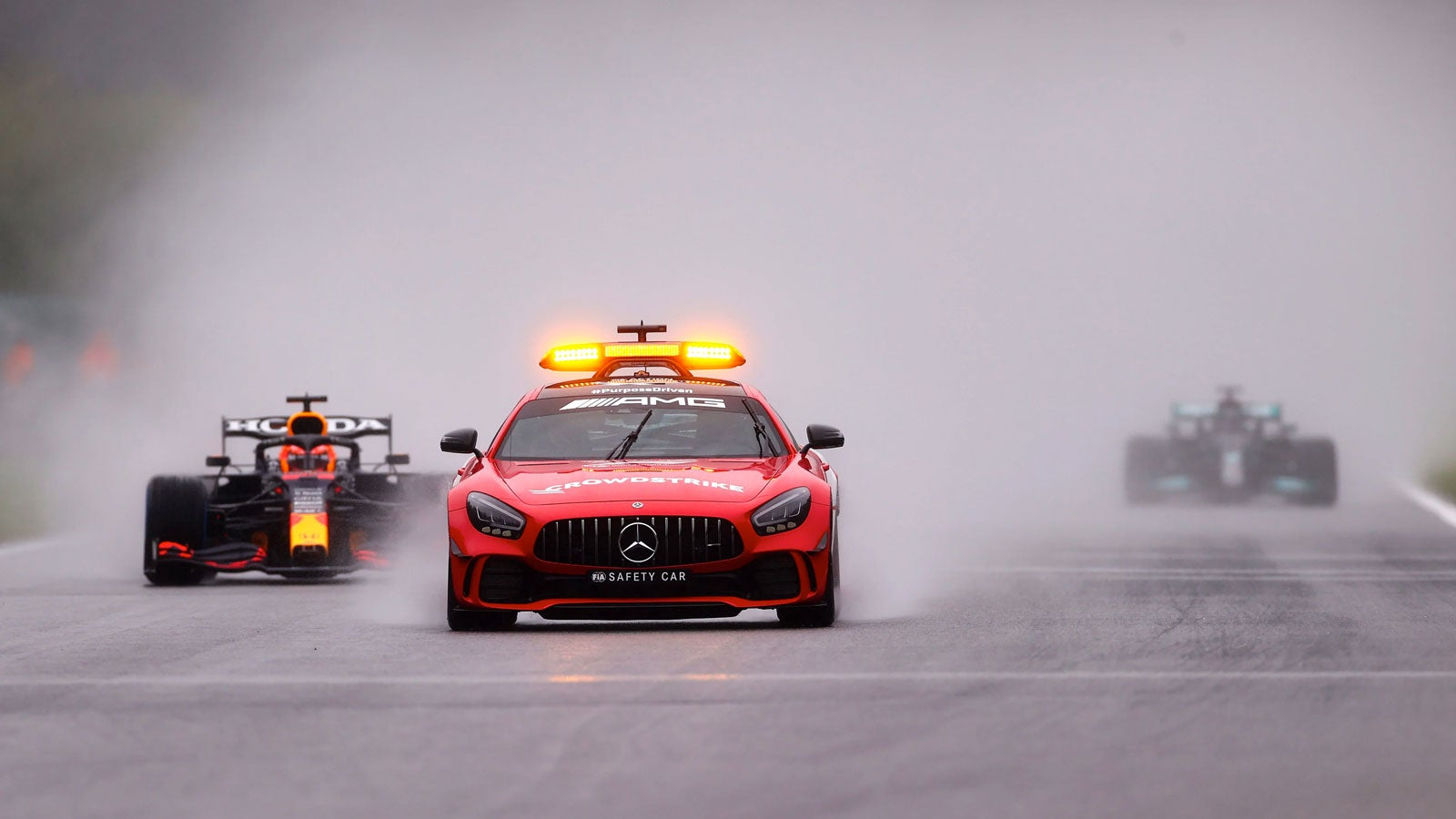Formula One Wants To Make Sure The Belgium Incident Never Happens Again
By the new rules, no points would have been awarded for the 2021 Belgian Grand Prix
Looking back on the 2021 Formula One season brings memories flooding to the front of mind, including some stellar drives, some incredible mistakes by teams and drivers, and one of the closest title battles in a long damn time. Unfortunately for everyone involved, last season was also packed with more awful calls by the race director than I can count. One could argue that the most egregious of these adjudicating missteps came at the decision to call the Belgian Grand Prix a completed race after two safety car laps.
Some of you might be shouting that Abu Dhabi was the worst thing to ever happen to the sport, and you could take that argument as well. Here's the thing, though, Abu Dhabi was at least entertaining. Belgium was a monumental fuck up, but not only that, it was also incredibly stupid and boring. Formula One and the people behind the race made fans to sit in the torrential downpour for hours, then gave them a farce of a Grand Prix, then completely screwed them over and didn't even offer a refund.
Well, the FIA wants to make sure such a race never happens again with a new rules change to the points structure for races that fall short of the full scheduled race distance. It's a bit more convoluted than just offering half points, as has been the standard for decades now, but great mistakes call for great changes.
The first and most important rule change, in my opinion, is that no points will be awarded if the safety car is never called in. The leader has to complete at least two laps without SC or VSC intervention. Excellent start!
If the leader has completed more than two laps, but fewer than 25 percent of the prescribed laps, points will be awarded to just the top five finishers. First will receive six points, second four, third three, fourth two, and fifth will get just a point.
If the leader gets beyond the 25 percent mark, but the race closes up shop before half distance, first through ninth will be awarded points. In this instance, the winner gets 13, runner up gets ten, third gets eight, fourth gets six, fifth gets five, sixth gets four, seventh just 3 points, eighth two points, and ninth a single point.
Once the race has crested half distance, but falls short of three-quarters distance, the winner will get a whopping 19 points. Points will be awarded to all top ten finishers, as follows: 19, 14, 12, 9, 8, 6, 5, 3, 2, 1. Ninth and tenth, in a 65 percent finished Grand Prix, will then receive full points as if they had finished the full Grand Prix distance. Interesting!
I cannot seem to find anything indicating what points will be awarded if a race falls short of full distance, but is 75 percent complete. We must presume, then, that a race of such example would award full points, as is currently the case, regardless. This would make sense, as the difference in hard racing between a three-quarters race and a full race is probably inconsequential. I once went to a Death Cab For Cutie concert and Ben Gibbard broke his amp after a dozen songs, got pissed, and walked off stage. There wasn't an encore, and the rest of the band came out to apologize, but they had played over an hour, and I wasn't exactly begging for a refund. I had paid to see a show, and brother I saw a fucking show.
Half points have only ever been awarded in F1 history six times, with Belgium last year being the sixth. This isn't exactly a common occurrence, so it is unlikely to make a difference in the points standings any time soon. Had this rule been instituted prior to the 2021 season, however, Lewis Hamilton would have won his eighth world title. It's a small change, but a necessary one, as it keeps Michael Masi's Belgian folly from ever being counted as a race ever again. And perhaps more importantly, it prevents points totals from ever ending in 1/2.
